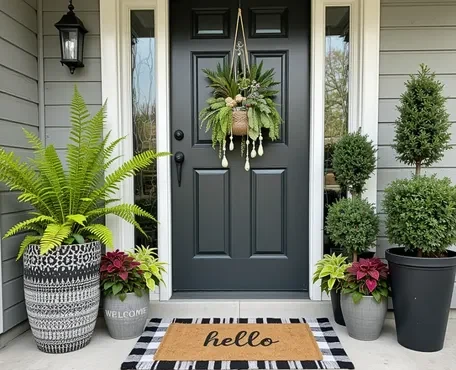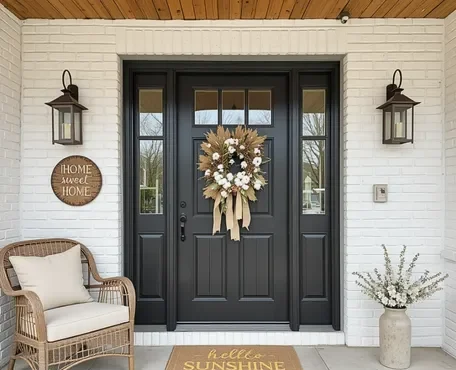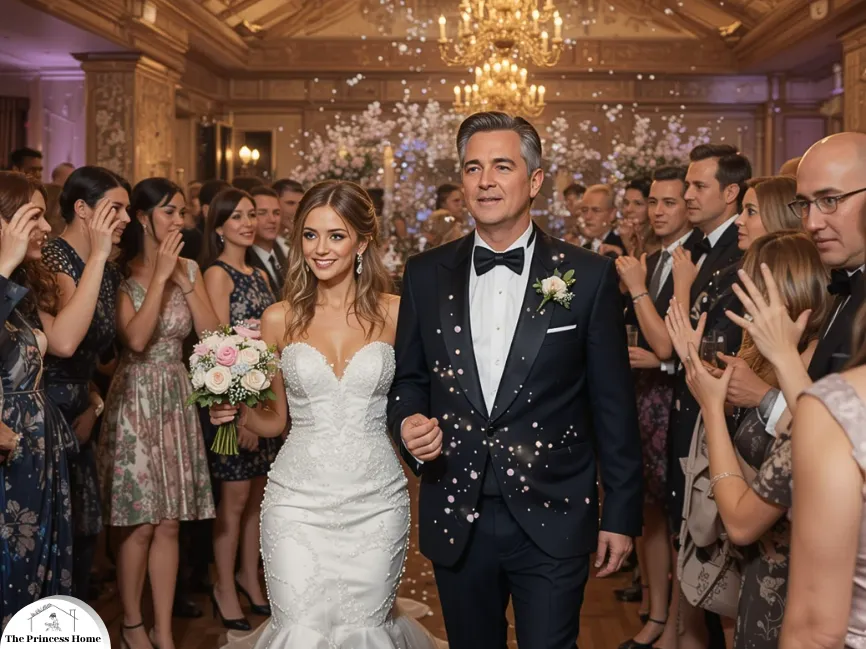
Wedding Etiquette Rules: Essential Guidelines for Guests
Weddings are joyous occasions, full of celebration, love, and commitment. Whether you are a seasoned wedding attendee or a first-time guest, understanding proper wedding etiquette can ensure that you not only enjoy the event but also respect the couple’s special day. Adhering to wedding etiquette guidelines will make you feel more confident, while showing consideration for the couple and other guests.
This detailed guide will walk you through the essential wedding etiquette rules for guests, helping you navigate everything from invitations to the wedding reception with grace.
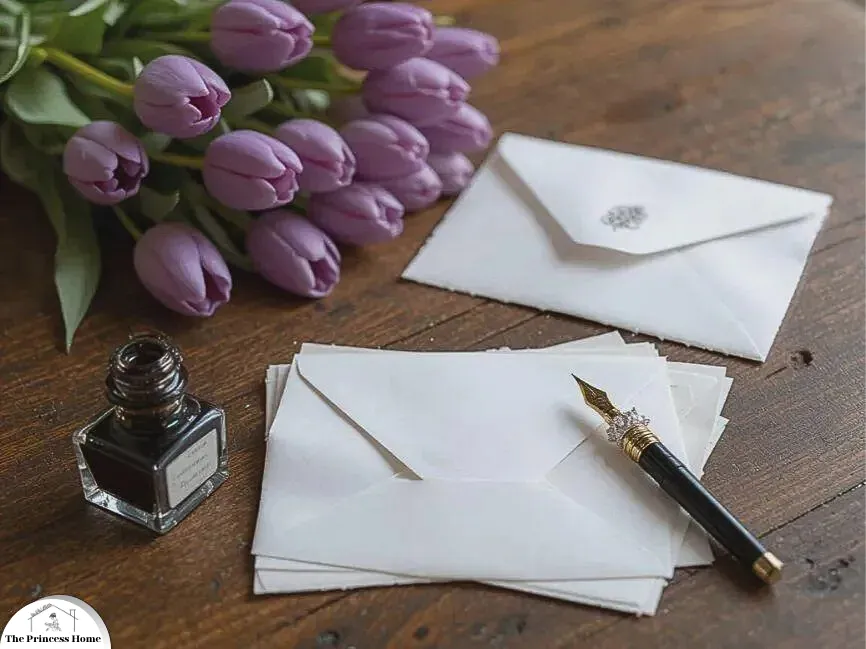
1. RSVP Responsibly
The first step in wedding etiquette is responding to the invitation promptly. When you receive the wedding invitation, ensure that you respond by the specified RSVP date, even if you are uncertain whether you can attend. This allows the couple to finalize their guest list, plan seating arrangements, and estimate catering numbers.
If you can’t attend a wedding, be honest and respond accordingly—don’t feel pressured to accept the invitation if you’re unable to make it. If you’re unsure, it’s better to confirm your attendance than leave it unresolved. Even if you can’t attend, consider sending a gift or a thoughtful card to show your well-wishes, as many couples truly appreciate this gesture.
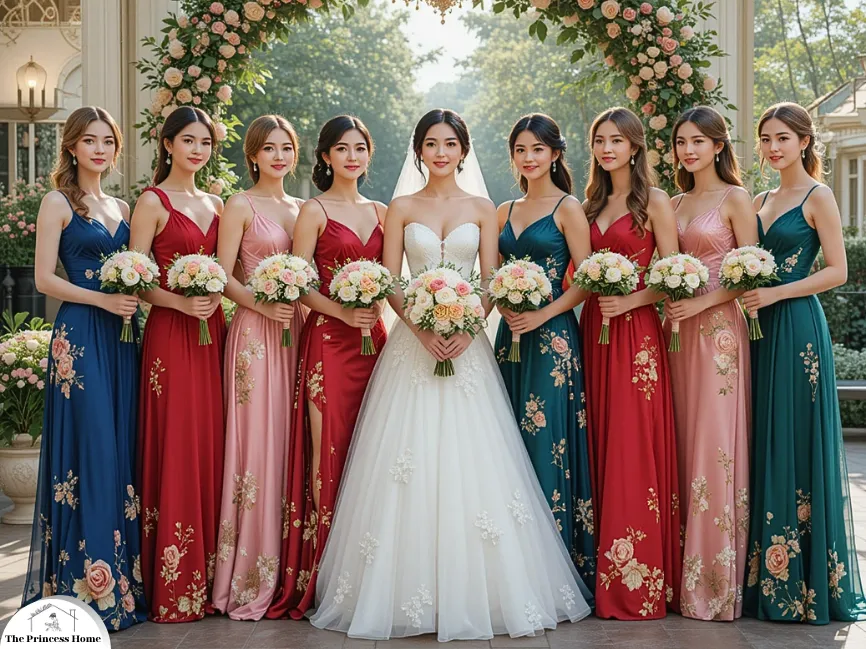
2. Dress Code Matters
Every wedding will come with its own dress code, and it’s crucial to follow these instructions. Whether the couple specifies formal, semi-formal, casual, or theme-specific attire, always adhere to these guidelines. Avoid wearing white or off-white, as these colors are traditionally reserved for the bride, unless you’re explicitly invited to do so. Wearing white can be seen as attempting to outshine the bride, which can be offensive.
Be mindful of the venue and season when choosing your attire—opt for lighter, breathable fabrics for outdoor or beach weddings, and more elegant attire for indoor or formal ceremonies. In winter, darker colors and thicker materials are suitable, while spring and summer weddings call for brighter, lighter shades. Keep accessories and hairstyles in line with the formality of the wedding, avoiding large hats or overly distracting pieces that could take attention away from the bride and groom.

3. Arrive on Time
Punctuality is one of the most crucial aspects of wedding etiquette. Arriving late can disrupt the ceremony and distract other guests. Arriving early is also recommended to ensure you have ample time to park, find your seat, and settle in. Plan ahead by accounting for potential delays, such as traffic or parking issues.
If the wedding is at a venue with a large parking lot, familiarize yourself with where you’ll need to go upon arrival. If you happen to arrive late for an unavoidable reason, enter discreetly and quietly. Wait for an appropriate moment to slip into your seat without disrupting the ceremony.
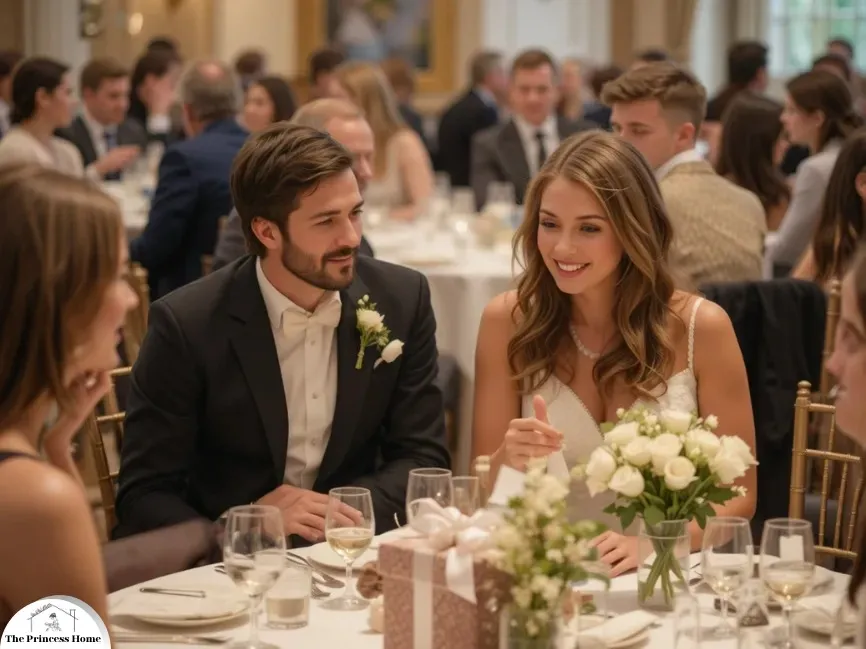
4. Gifts: Thoughtful &Appropriate
While a wedding gift is never an obligation, it is a kind gesture and a traditional part of being a guest. The couple may have a wedding registry, which offers a convenient guide for gifts, ensuring that the couple receives something they truly need or want. It’s courteous to send your wedding gift either before or shortly after the ceremony.
While giving a gift at the reception is acceptable, it can be awkward, especially if the couple is busy. Many couples now prefer cash gifts or gift cards, as these allow them to purchase what they need post-wedding. However, it’s important to check the couple’s preferences first, as some may still prefer traditional presents.
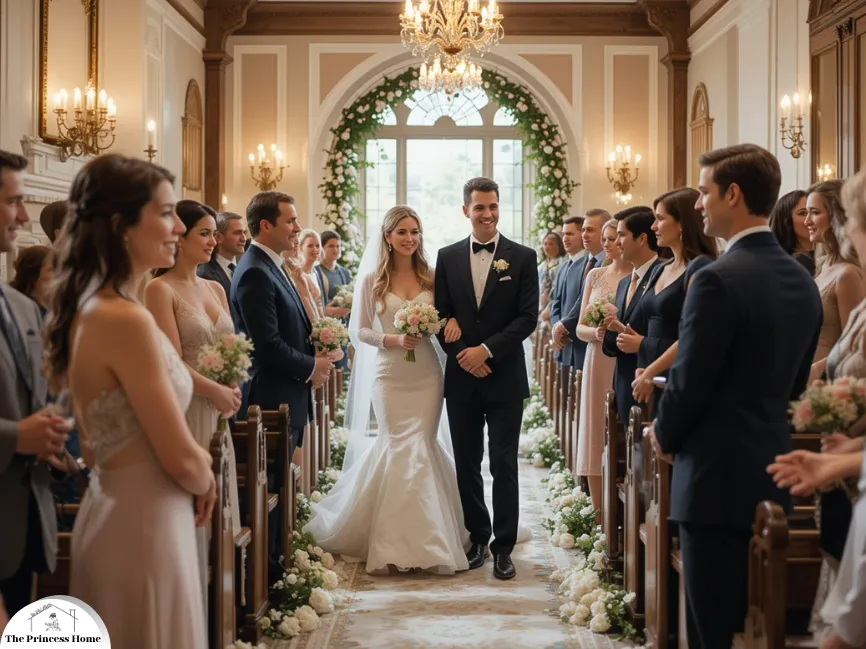
5. Respect the Ceremony and Reception
Weddings involve significant emotional and spiritual moments, and guests should respect the significance of the event. While it is a celebration, it’s important to keep certain behaviors in check. Make sure to turn off your phone or put it on silent mode before entering the ceremony to avoid any disruptions. Refrain from loud conversations or unnecessary noise during the ceremony. If there’s a professional photographer, follow their guidelines and avoid standing in the way during key moments.
Always ask before taking photos, particularly during important parts of the ceremony when the photographer may have specific requests. Respect the seating arrangement as it has been thoughtfully planned by the couple. If seating isn’t assigned, be mindful of other guests and avoid crowding the front rows if you’re arriving late.
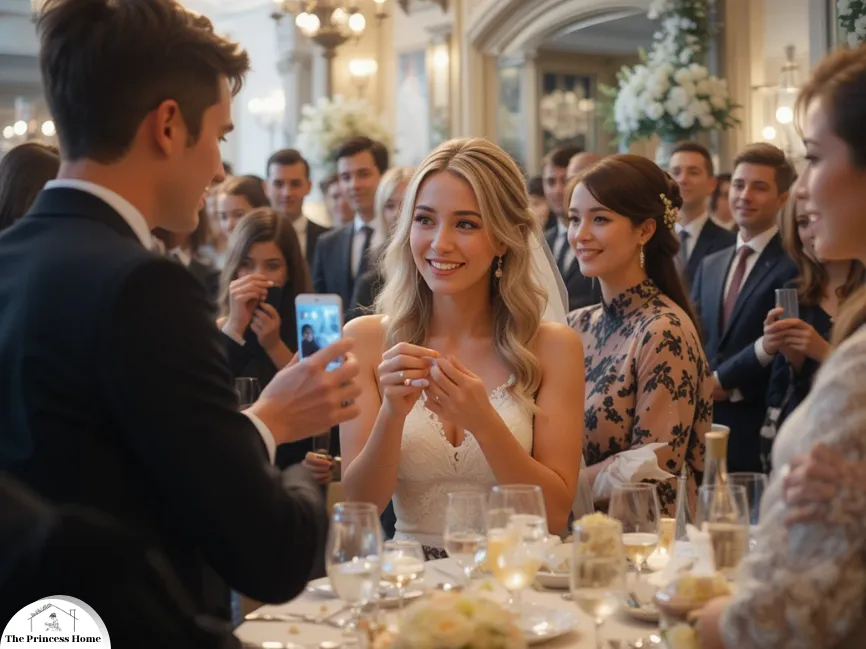
6. Social Media Posts
While sharing your experiences on social media is tempting, it’s important to approach it with sensitivity during weddings. Ask the couple about their preferences regarding social media sharing, as some couples may have specific requests, such as not posting until after the ceremony or refraining from posting altogether. Avoid oversharing by limiting your posts to appropriate moments and refraining from uploading too many pictures during the ceremony or before the couple has had the chance to share their professional photos.
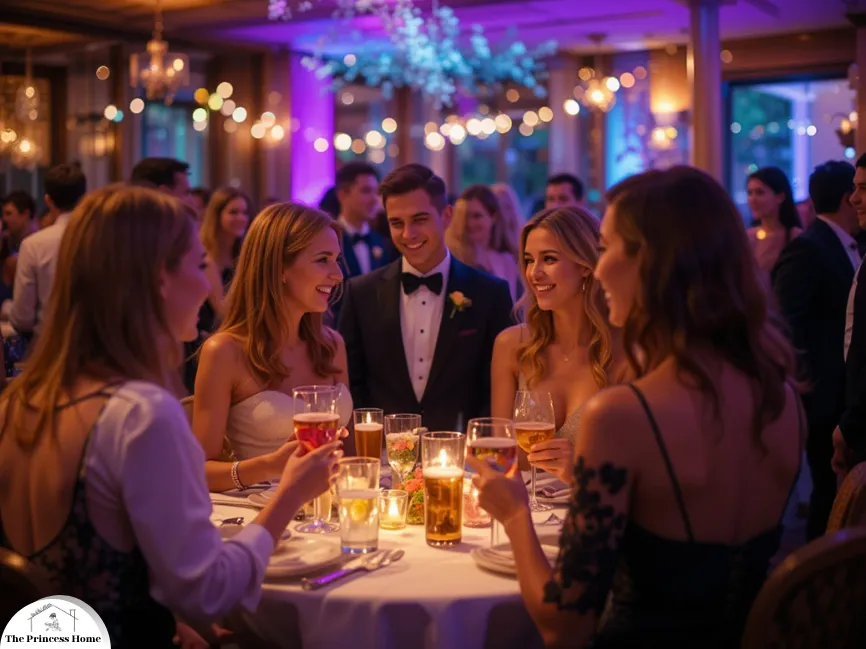
7. Enjoy (but Don’t Overindulge)
The reception is a time to relax and enjoy the celebration with the couple and other guests, but it’s essential to exhibit good manners throughout the event. Pace yourself with alcohol consumption to ensure you enjoy the evening respectfully. It’s easy to get carried away, but excessive drinking can affect your behavior. Take the time to socialize and mingle, but also be mindful of the couple’s schedule. Remember, they’re likely juggling multiple conversations, so allow them to spend time with as many guests as possible.
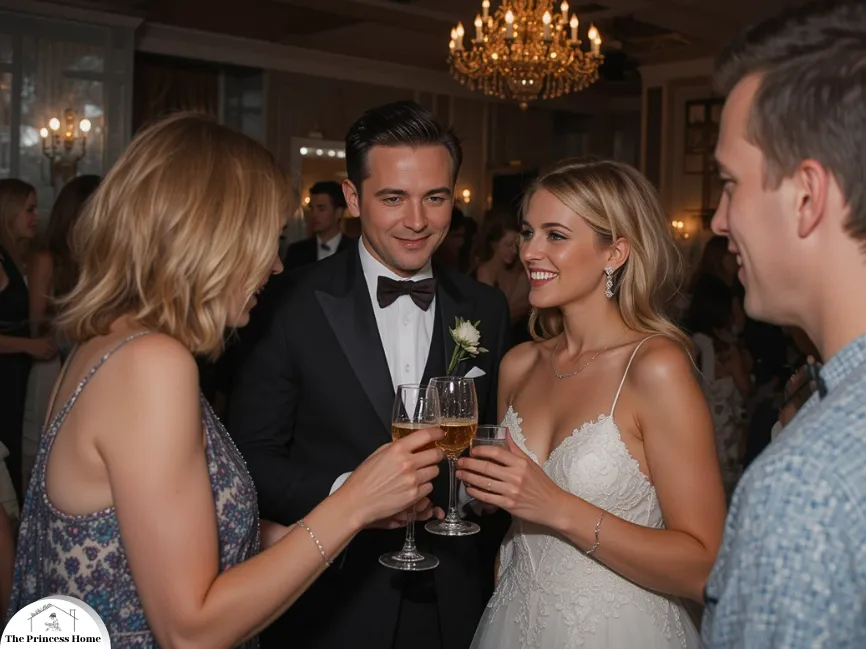
8. Respect the Time and Space
Remember, this is the couple’s special day, and they may not be able to give you their undivided attention all evening. Be understanding and don’t expect to monopolize the couple’s time. They have many guests to attend to, and while it’s great to catch up, allow them to interact with everyone. Make sure to take a moment during the reception to offer your congratulations, whether privately or in a group, but avoid crowding them with constant demands for attention.
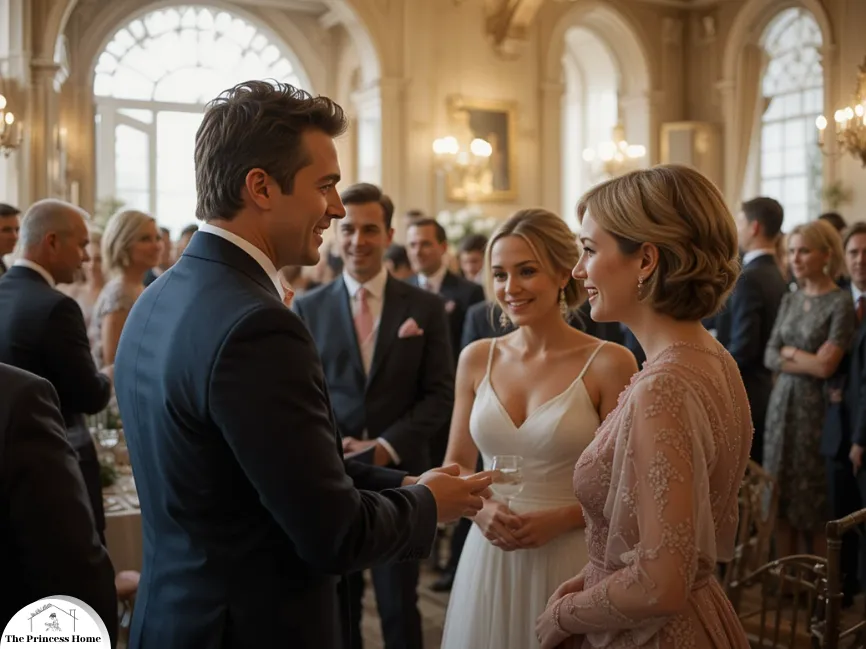
9. Mind Your Manners
Always exhibit polite and respectful behavior at all times, not only towards the couple but also toward the other guests. Be kind to other guests, as weddings often bring together people from different walks of life. Avoid engaging in inappropriate conversations and always be considerate of those around you. Offering a sincere compliment to the couple about the ceremony or reception is a thoughtful way to show your appreciation for their efforts.
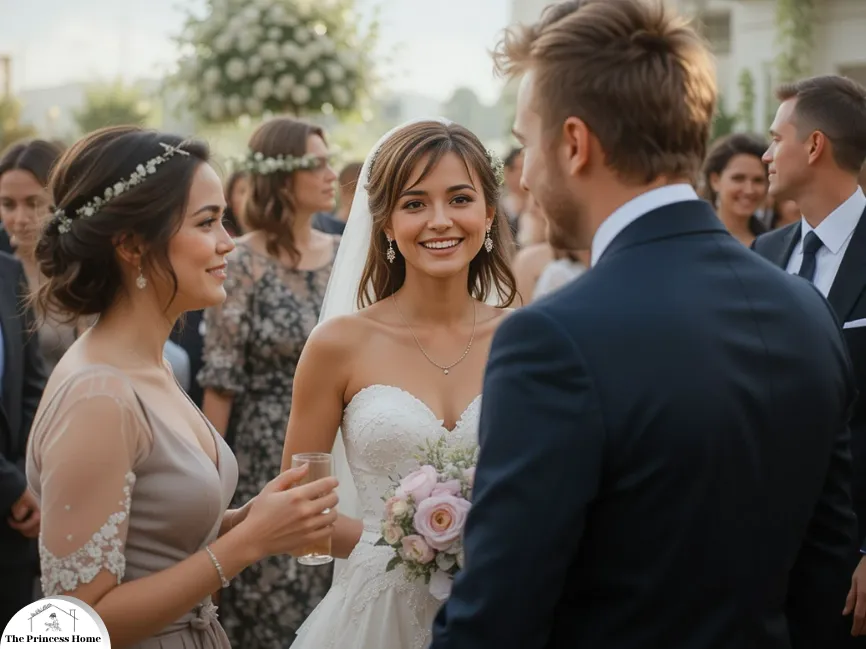
10. When to Leave
While the wedding reception may last for hours, it’s essential to know when to leave appropriately. Know the end time of the wedding, and if you need to leave early, do so discretely without drawing attention to your departure. Be sure to thank the couple on your way out and wish them a wonderful future together. If you’re unsure, wait until the couple makes their exit. Many weddings have a planned send-off, and it’s respectful to wait for them to leave before you follow suit.

11. Cultural &Religious Traditions
Weddings are deeply rooted in cultural, religious, and personal traditions, and it is important to respect the practices and customs observed by the couple. Understanding and adhering to these traditions shows a level of thoughtfulness and respect that can enhance the experience for both you and the couple. If the couple comes from a different cultural or religious background, take some time to familiarize yourself with the key customs and traditions that will be part of their wedding.
You don’t need to be an expert, but even a basic understanding of the ceremony can show your respect and make you feel more comfortable. If there are traditions or rituals that invite guest participation (such as a toast, prayer, or dance), be ready to join in. If you’re unsure, it’s fine to watch first and ask if you’re uncertain about how to participate.
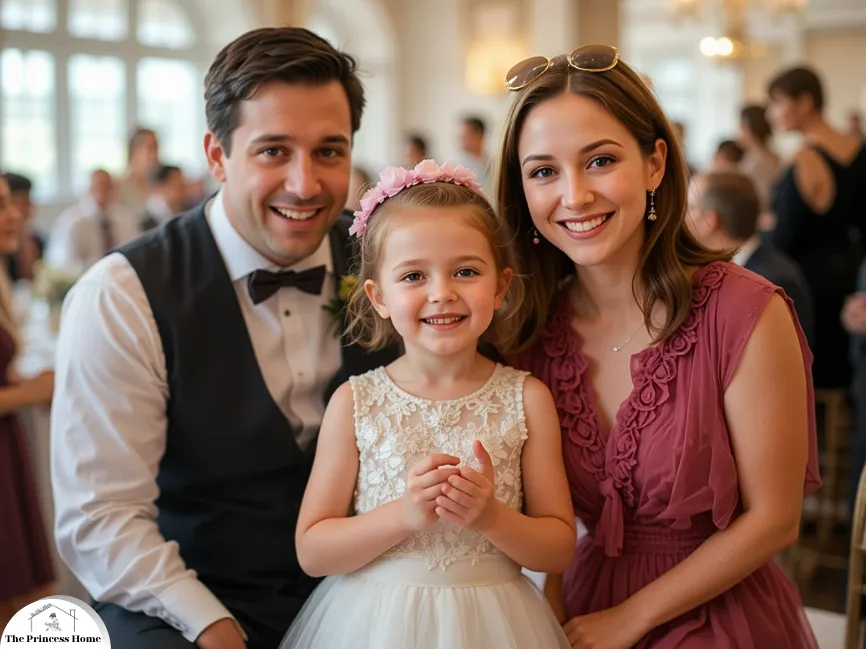
12. Be Mindful of Your Children
Bringing children to a wedding is often an issue for both the couple and guests. Some weddings may be family-friendly, while others may have age restrictions. Check the wedding invitation to see if children are invited. If it’s not explicitly mentioned, it’s courteous to ask the couple in advance. Respect the venue’s policies, as some may have restrictions on children due to space, noise, or safety concerns.
If the couple has requested an adults-only event, do not bring children unless you’ve confirmed with them. If you do bring children, make sure they’re entertained during the ceremony and reception. Consider bringing small activities, games, or treats to keep them engaged, especially during moments when adults are listening or speaking.
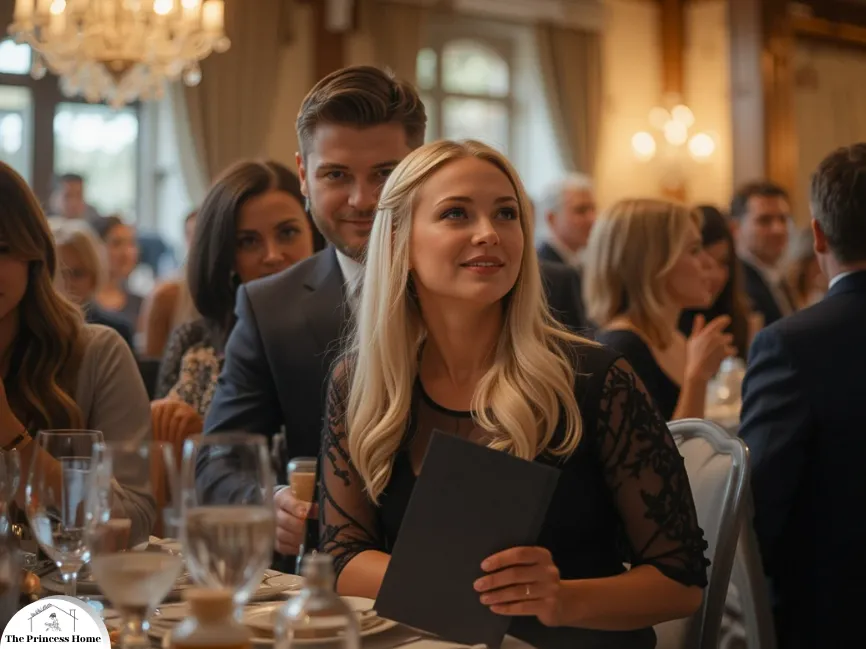
13. Be Supportive of the Couple’s Choices
Weddings often come with a variety of decisions, from the style of the ceremony to the choice of venue and even the menu. While you may have personal preferences, it’s essential to be supportive of the couple’s choices, as their wedding day is about celebrating their vision. Avoid complaining about aspects of the wedding that don’t meet your personal expectations, whether it’s the food, music, or decor.
Keep your opinions to yourself, as the couple has likely invested a lot of time and effort into curating their celebration. Instead, stay positive and compliment the details, whether it’s the floral arrangements, the ceremony vows, or the newlywed couple’s choice of songs. Positive feedback will make the couple feel loved and appreciated.
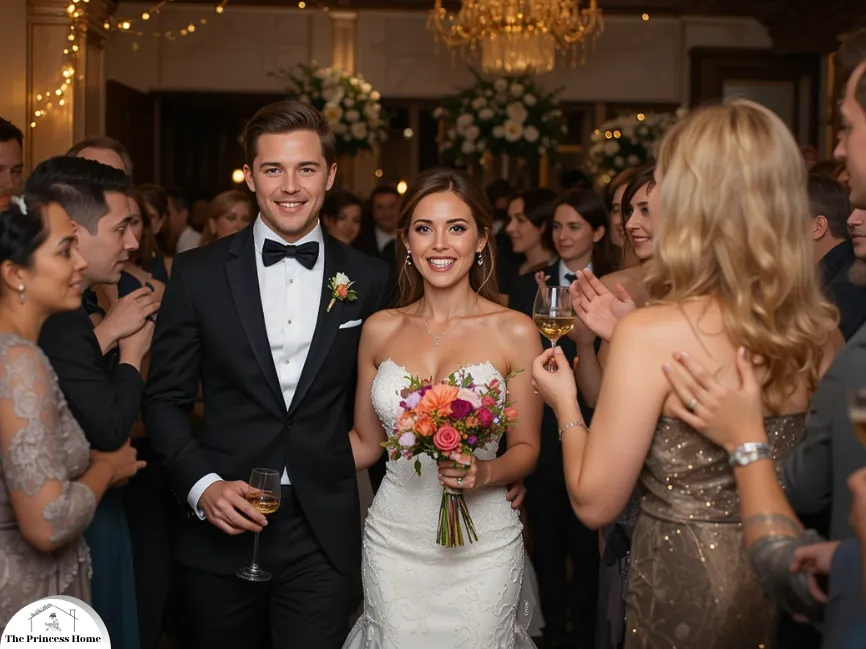
14. Ceremony and Speeches
One key way to show respect during a wedding is to pay attention and remain engaged during the ceremony and speeches. It’s easy to get distracted by conversations or phones, but staying focused on the event makes the experience more meaningful. Put away distractions by keeping your phone off or in silent mode throughout the ceremony and speeches.
Avoid texting, talking, or engaging in side conversations during these important moments. Take the time to listen and appreciate the vows, as they are often the most intimate part of the ceremony. Whether traditional or personal, it’s a moment filled with emotion that both the couple and their guests will remember.
If there are speeches or toasts, stay quiet and give the speakers your attention. Laughing or making loud comments during these speeches can be distracting and may even embarrass the speakers. Additionally, avoid interrupting or giving unsolicited advice during speeches, as this can disrupt the flow of the event.
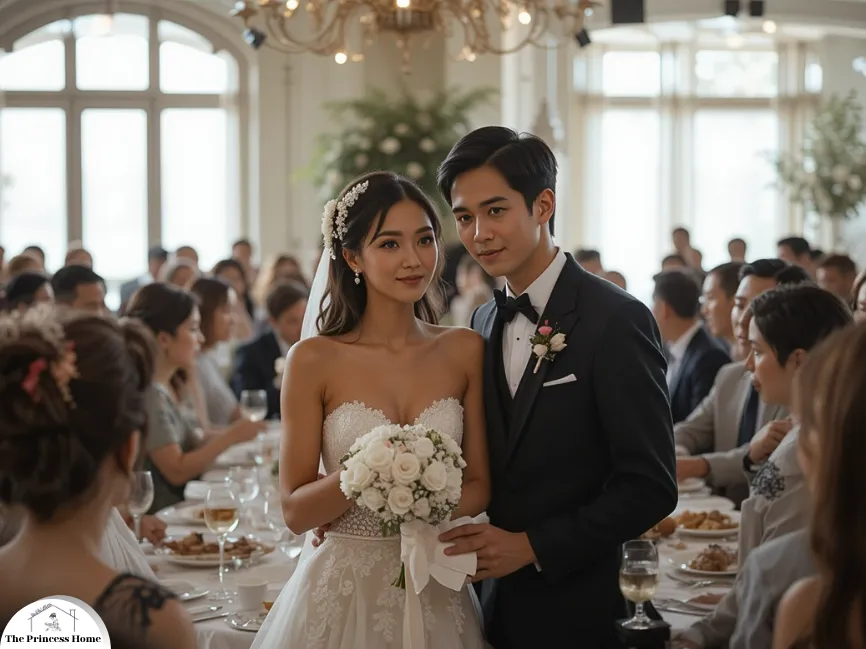
15. Couple’s Request for No Gifts
While most weddings involve gift-giving, some couples may opt for a “no gifts” request on their invitations, often to avoid unnecessary pressure or because they may already have everything they need. If this is the case, respect their wishes and refrain from bringing a gift. Some couples may encourage charitable donations in lieu of gifts. In this case, check the couple’s preferred charity and make a donation in their honor. This thoughtful gesture shows that you value their wishes and supports a cause close to their hearts.
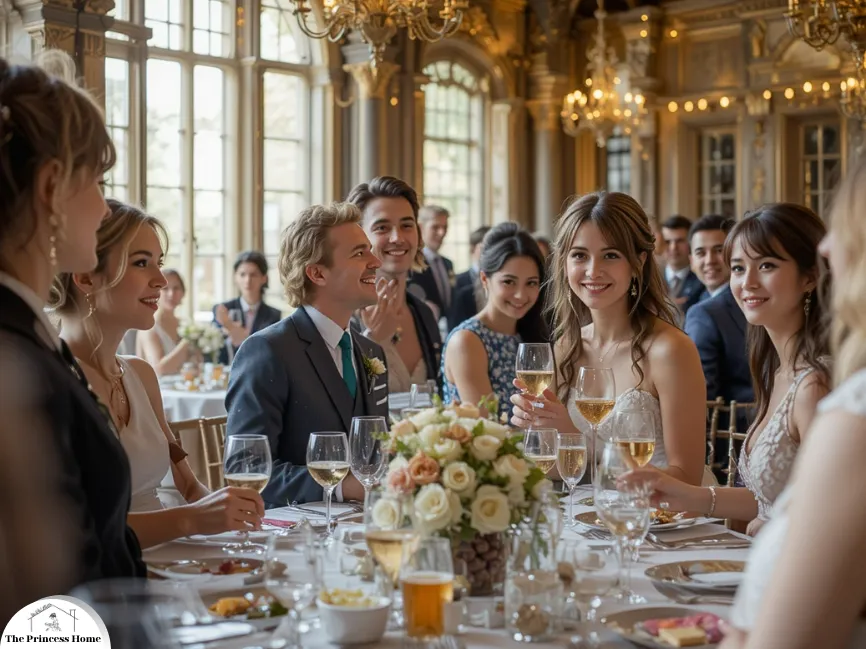
16. Respect the Wedding Budget
Couples often spend significant time and effort budgeting for their wedding, so as a guest, it’s important to be mindful of the costs associated with your attendance. This goes beyond the cost of the gift. Be mindful of the amount of food you take if the wedding includes a sit-down dinner or buffet, especially if the couple has limited catering.
Avoid overindulging or overdrinking, as this may strain their budget. Respect the guest list, as weddings can be expensive, and many couples carefully curate an intimate and manageable list. If the couple has limited the number of attendees, avoid inviting additional guests or bringing uninvited plus-ones without first checking with them.
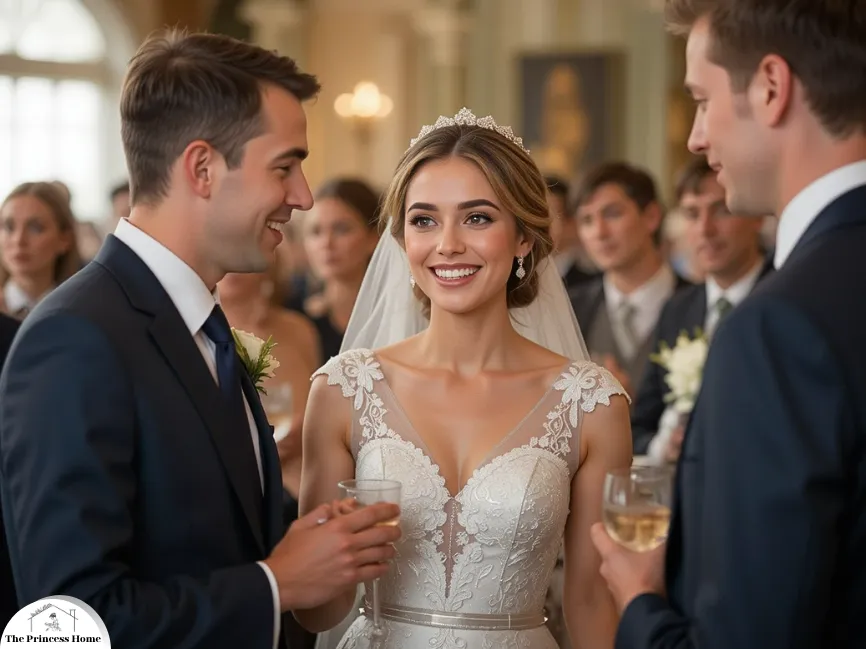
17. Don’t Engage in Drama
Weddings are a time of joy, and it’s important to keep the mood light and stress-free. Avoid engaging in or contributing to any drama, whether it’s a family disagreement or a personal issue with another guest. Stay calm and collected if any conflict or uncomfortable situation arises, handling it away from the couple and the festivities. A wedding is not the time or place for airing grievances or engaging in disputes. Similarly, don’t draw attention to personal issues with other guests. Keep the focus on the celebration and maintain positive interactions with everyone in attendance.
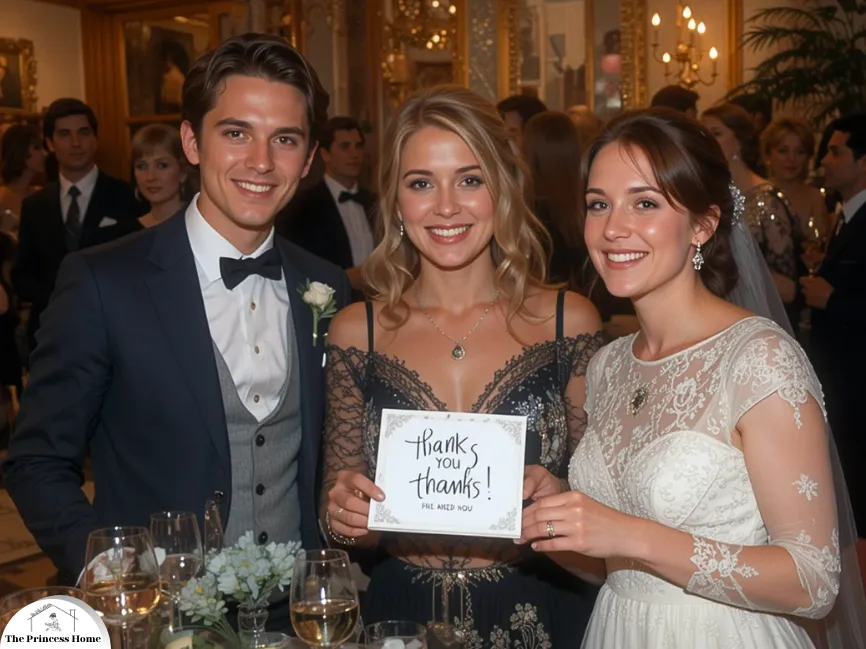
18. Take Time to Thank the Couple
After the wedding, take a moment to express your gratitude and thanks to the couple. If you can, write a short thank-you card or send a personal message to let them know you enjoyed the day and are grateful for being included. Show appreciation by letting the couple know how much you valued the invitation and the special moments they shared with you.
Thank them for their hospitality and congratulate them on their new journey as a married couple. If the couple is comfortable with social media, sharing a positive post about how much you enjoyed the wedding is a thoughtful way to express your gratitude. Just be sure to keep your posts respectful and in line with the couple’s wishes.
Conclusion
Weddings are one of the most important days in a couple’s life, and as a guest, your role is to contribute to the joy and success of the event. By following these wedding etiquette rules, you will not only help create a memorable day for the couple but also show your respect and admiration for their special occasion. From the moment you receive the invitation to the time you say your goodbyes, every step of the process is an opportunity to make the couple feel loved and supported. So, take the time to follow these guidelines, and you’ll be remembered as a thoughtful, gracious guest who helped make their wedding day truly unforgettable.
Here are some frequently asked questions related to the article :
1. What should I do if I can’t attend a wedding I was invited to?
If you’re unable to attend the wedding, it’s essential to let the couple know as soon as possible. Send a polite response indicating your regret and wish them well on their special day. A thoughtful gesture like sending a card or a gift can also express your congratulations and appreciation.
2. Can I bring a guest to a wedding if it’s not mentioned on the invitation?
Typically, if the invitation does not explicitly include a plus-one, it’s best not to bring an uninvited guest. If you’re unsure, reach out to the couple and ask if it’s okay to bring a guest. Respecting their guest list is important, as weddings are often planned with specific budgets and space limitations.
3. Is it acceptable to wear white to a wedding?
Traditionally, white is reserved for the bride, so it’s best to avoid wearing white, ivory, or cream to a wedding unless specified by the couple (e.g., a “white-themed” wedding). Stick to other colors to ensure you don’t upstage the bride or draw unwanted attention.
4. What should I wear if the dress code is not specified?
If the dress code is not mentioned, you can follow a general rule based on the wedding’s location and time of day. For evening weddings, formal or cocktail attire is often expected, while daytime weddings may call for lighter, more casual outfits. If you’re uncertain, it’s better to slightly overdress than underdress.
5. Should I bring a gift even if the couple hasn’t requested one?
Yes, it’s customary to bring a gift to a wedding as a gesture of goodwill and celebration. If the couple has a gift registry, it’s a good idea to choose something from that list. If they’ve requested no gifts, respect their wishes and consider making a donation to a charity in their name or sending a heartfelt note.
6. How long should I stay at the wedding?
It’s generally polite to stay for the entire event, including the reception, unless you have a specific reason to leave early. However, if you need to leave before the end of the reception, wait for a natural break in the event (like after the speeches or dinner) and quietly excuse yourself.
7. Is it okay to take photos at the wedding?
Some couples may have specific rules regarding photography, either asking for an “unplugged” ceremony or designating certain areas for photos. Always check with the couple beforehand to see if there are any restrictions. If photos are allowed, be mindful of professional photographers and try not to obstruct their shots.
8. What if I don’t agree with the couple’s choice of wedding details (like the food, music, or decor)?
It’s essential to remember that the wedding is about the couple’s preferences, and it’s their special day. Keep any critiques to yourself. Focus on celebrating their choices and making the day enjoyable for everyone involved.
9. Should I thank the couple after the wedding?
Yes, expressing your thanks after the wedding is a lovely gesture. You can send a thank-you card, an email, or a message on social media to let the couple know how much you enjoyed their wedding and to congratulate them once again.
10. What is the best way to address any issues with wedding arrangements or logistics?
If you have any concerns or need clarification (for example, about the dress code, parking, or RSVP details), contact the wedding organizer or the couple ahead of time. Do not bring up complaints or concerns on the wedding day.



